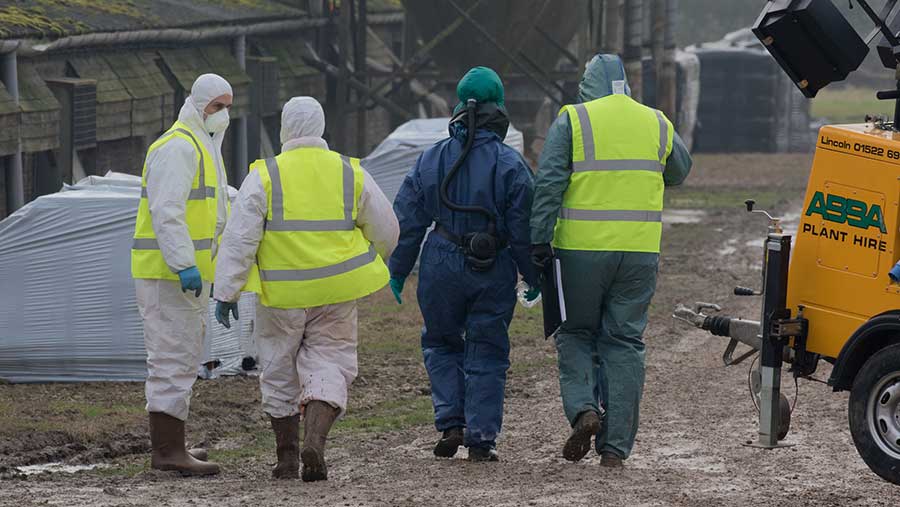No more aid for producers hit by avian flu, says Coffey
 © Tim Scrivener
© Tim Scrivener Defra secretary Therese Coffey has issued a firm “no” to calls from a cross-party group of MPs for additional aid for egg and poultry producers hit by the worst-ever outbreak of avian influenza.
The Environment Food and Rural Affairs (Efra) committee wrote to Ms Coffey last December seeking fairer compensation for producers who have had birds culled due to disease outbreak, and money to help them restock their sheds sooner.
See also: Avian flu case decline sparks housing order optimism
In particular, it wanted compensation to be based “on the number of birds alive in the affected flock at the point of disease notification, rather than the number of birds that are culled”.
This was because delays to starting culling in an outbreak meant there would be fewer birds still alive and, therefore, less compensation.
But in her reply to the Efra committee, Ms Coffey insists that compensation is only paid by the government to encourage prompt reporting of suspicion of disease.
“It is not intended to compensate for animals that will die from a particular disease,” she said.
Ms Coffey pointed out that Defra had already improved the compensation offer, so that it is now based on the number of healthy birds still alive 48 hours after a culling order has been issued.
“The department has no plans to make any further changes,” she said.
Restocking
The Efra committee had also requested financial aid to help producers restock quicker, to minimise the effect of avian influenza on already tight supplies of eggs and poultry.
“We believe [government] should provide financial support for deep cleaning of sheds, to enable growers to restock as soon as possible,” it said, noting that unless farmers pay for secondary cleaning and disinfection, they must wait 12 months before restocking.
But again Ms Coffey has rejected this request, saying that was a commercial decision for the farmer.
“In many of the recent avian influenza outbreaks, epidemiological investigations have, unfortunately, highlighted a strong correlation to insufficient biosecurity measures,” she said.
“While it may seem attractive for the taxpayer to subsidise restocking efforts in order to maintain supply of poultry and eggs, we must make sure there is a level playing field within the sector.”
